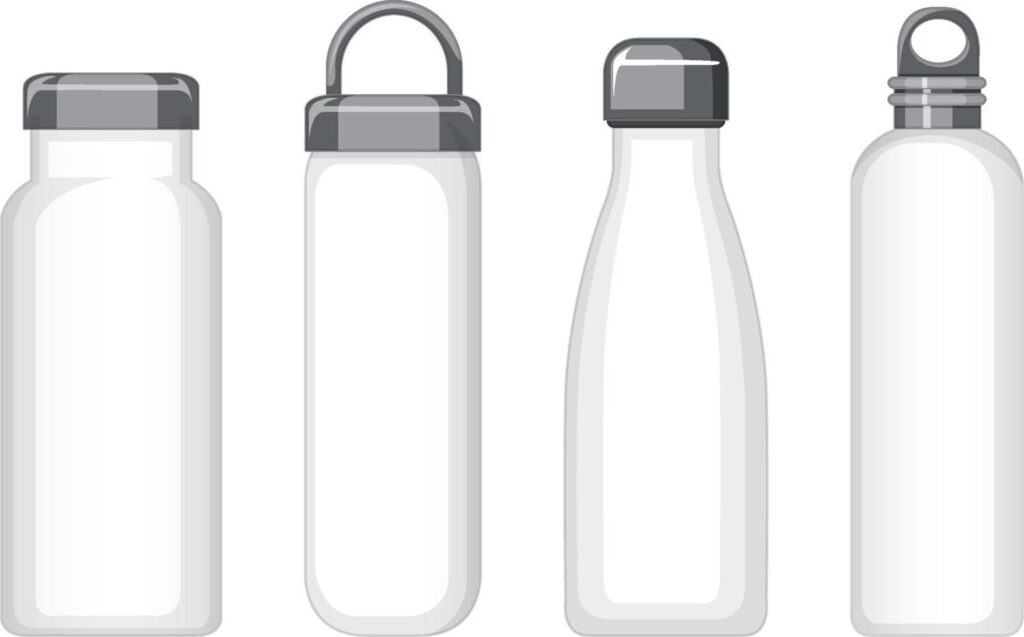In a world where staying hydrated is paramount, our trusty water bottle have become our faithful companions. But are they as safe as we think? This product review blog post will delve into the often-overlooked hidden dangers of your water bottle. We’ll explore the potential risks associated with various types of water bottles and provide you with the essential information you need to make informed choices.
Plastic Water Bottles
The Plastic Predicament
Plastic water bottles are the most common choice due to their widespread availability and convenience. However, they may not be as innocuous as they seem.
One of the primary concerns with plastic water bottles is chemical leaching. These bottles are typically made from polyethylene terephthalate (PET), which, over time, can release harmful chemicals into your water. These chemicals, including Bisphenol A (BPA) and phthalates, have been associated with a range of health issues, including disruptions in hormone regulation.

Eco-Impact
Plastic bottles not only pose health risks but also have a significant environmental impact. They contribute to pollution and can take hundreds of years to decompose, harming our ecosystems and aquatic life.
Safer Alternatives
Stainless Steel Bottles

If you’re concerned about the potential dangers of plastic bottles, consider switching to stainless steel water bottles. These alternatives are not only durable but also free from harmful chemicals. They are a safe choice for both your health and the environment.
Glass Bottles
Glass water bottles are another secure option. They are non-toxic and do not leach chemicals into your water. Additionally, they are recyclable. While they may be a bit heavier and more fragile, the health and environmental benefits outweigh these minor inconveniences.

The Importance of Cleaning
Mold and Bacteria Growth
Regardless of your choice of water bottle, regular cleaning is essential. Neglecting to do so can lead to mold and bacteria growth inside your bottle, which poses its own set of health risks.
Water Bottle Product Review
Water bottles are a daily necessity for many people. They come in various shapes, sizes, and materials, and choosing the right one can have a significant impact on your health and the environment. In this product review, we will discuss the different types of water bottles available in the market and their respective advantages and disadvantages. We will also provide you with recommendations on the best water bottles to purchase to ensure both your health and the planet are protected.
- Plastic Water Bottles: These are the most common and convenient choice for many. However, the potential risks associated with chemicals leaching into your water are a concern. We will discuss the hidden dangers and suggest BPA-free options.
- Stainless Steel Water Bottles: If you are looking for a safer alternative to plastic, stainless steel water bottles are an excellent choice. They are durable, eco-friendly, and free from harmful chemicals. We will review some of the top stainless steel water bottles in the market.
- Glass Water Bottles: Glass water bottles are another safe option. They do not leach chemicals into your water and are recyclable. While they may be heavier and more fragile, they have their own set of advantages. We will provide recommendations for the best glass water bottles available.
- Cleaning and Maintenance: Regardless of the type of water bottle you choose, proper cleaning and maintenance are crucial to prevent mold and bacteria growth. We will give you tips on how to keep your water bottle clean and safe for daily use.
By the end of this product review, you will have a comprehensive understanding of the hidden dangers associated with different types of water bottles and will be well-equipped to make an informed choice that ensures your health and the environment are protected.
Conclusion
In conclusion, the water bottle you choose can have more significant implications for your health and the environment than you might have realized. Plastic bottles, while convenient, come with hidden dangers due to chemical leaching and their environmental footprint. Safer alternatives like stainless steel and glass bottles offer a healthier and more eco-friendly way to stay hydrated. It’s essential to stay informed and make the right choice for you and our planet.

